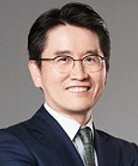U.S., China, Russia should urge to proactively seek N.K. nuke talks
U.S., China, Russia should urge to proactively seek N.K. nuke talks
Posted November. 25, 2013 04:58,
Iran and P5+1 (five permanent members of the U.N. Security Council + Germany) reached a nuclear agreement Sunday in Geneva, Switzerland, that Iran halts of uranium enrichment above a fissile purity of 5 percent and that the U.S. lifts certain sanctions. The Iranian nuclear issue is the most serious global security concern along with North Koreas nuclear weapons. Since an Iranian anti-government organization revealed the existence of Iran`s uranium enrichment facilities in 2002, the situation has continuously deteriorated amid conflicts between the international communitys sanctions and Irans obvious ambition in nuclear weapons development. There is still a long way to go, but Sunday`s deal is significant in that the two sides have found a measure to resolve the nuclear stand-off through negotiations for the first time.
The U.N. Security Council has pressured Teheran through four rounds of sanctions over the past years. The U.S. and the European Union have imposed a wide variety of sanctions on Iran, including export ban of Iranian oil. In order to counter the sanctions, the Middle Eastern country had produced 20-percent enriched uranium, which could be converted into nuclear weapons. But since August this year when President Hassan Rouhani inaugurated, Iran has shifted its direction. It opted for a practical stance through which it seeks a solution through dialogue, rather than risking an economic crisis amid sanctions. Rouhani talked over the phone with the leaders of the U.S., Russian and Britain as part of his efforts to seek reconciliation.
The P5+1 and Iran plan to seek a comprehensive solution six months later. Since the leaders of the concerned countries are involved and their foreign ministers engaged in negotiations in person, chances are high that the efforts will end in success. But if Iran shifts its direction toward nuclear development anew, it will face even stronger sanctions. Regarding the lifting of the main sanctions on Iran, Israel is warning against the deal and the U.S. Republican Party is criticizing it. The prevailing trend, however, has leaned toward the resolution through dialogue.
As the Iranian nuclear issue has entered a phase of resolution, North Koreas nuclear ambition is also drawing attention. The North has conducted as many as three nuclear tests, making far more serious provocations than Iran. Despite this situation, six-way talks to resolve the North Korean nuclear stand-off has been halted for five years since December 2008. The U.N. Security Council, which has found a solution to the Iranian nuclear conflict, should feel a great deal of responsibility. Notably, the U.S., China and Russia, which are participating in the six-way talks, should proactively seek six-way talks to resolve the Norths nuclear weapons programs.
Chief negotiators from South Korea, China and Japan have recently moved back and force, but made little progress. If no breakthrough is in sight, it would be worth elevating the level of negotiators in the talks. Chief negotiators of the six-way talks are just the level of director-generals or vice ministers. If a system is put in place where minister-level officials participate and heads of state are involved, which was the case in the Iranian nuclear talks, the weight of the six-way talks will increase significantly.







